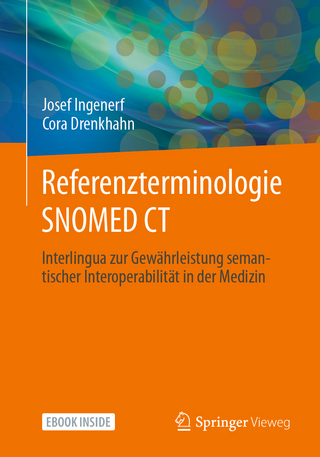Euro-Par 2010 - Parallel Processing
Springer Berlin (Verlag)
978-3-642-15276-4 (ISBN)
Topic 1: Support Tools and Environments.- Distributed Systems and Algorithms.- Starsscheck: A Tool to Find Errors in Task-Based Parallel Programs.- Automated Tuning in Parallel Sorting on Multi-core Architectures.- Estimating and Exploiting Potential Parallelism by Source-Level Dependence Profiling.- Source-to-Source Optimization of CUDA C for GPU Accelerated Cardiac Cell Modeling.- Efficient Graph Partitioning Algorithms for Collaborative Grid Workflow Developer Environments.- Profile-Driven Selective Program Loading.- Characterizing the Impact of Using Spare-Cores on Application Performance.- Topic 2: Performance Prediction and Evaluation.- Performance Prediction and Evaluation.- A Model for Space-Correlated Failures in Large-Scale Distributed Systems.- Architecture Exploration for Efficient Data Transfer and Storage in Data-Parallel Applications.- jitSim: A Simulator for Predicting Scalability of Parallel Applications in Presence of OS Jitter.- pCFS vs. PVFS: Comparing a Highly-Available Symmetrical Parallel Cluster File System with an Asymmetrical Parallel File System.- Comparing Scalability Prediction Strategies on an SMP of CMPs.- Topic 3: Scheduling and Load-Balancing.- Scheduling and Load Balancing.- A Fast 5/2-Approximation Algorithm for Hierarchical Scheduling.- Non-clairvoyant Scheduling of Multiple Bag-of-Tasks Applications.- Extremal Optimization Approach Applied to Initial Mapping of Distributed Java Programs.- A Delay-Based Dynamic Load Balancing Method and Its Stability Analysis and Simulation.- Code Scheduling for Optimizing Parallelism and Data Locality.- Hierarchical Work-Stealing.- Optimum Diffusion for Load Balancing in Mesh Networks.- A Dynamic, Distributed, Hierarchical Load Balancing for HLA-Based Simulations on Large-Scale Environments.- Topic 4: High Performance Architectures and Compilers.- High Performance Architectures and Compilers.- Power-Efficient Spilling Techniques for Chip Multiprocessors.- Scalable Object-Aware Hardware Transactional Memory.- Efficient Address Mapping of Shared Cache for On-Chip Many-Core Architecture.- Thread Owned Block Cache: Managing Latency in Many-Core Architecture.- Extending the Cell SPE with Energy Efficient Branch Prediction.- Topic 5: Parallel and Distributed Data Management.- Parallel and Distributed Data Management.- Federated Enactment of Workflow Patterns.- A Distributed Approach to Detect Outliers in Very Large Data Sets.- Topic 6: Grid, Cluster and Cloud Computing.- Grid, Cluster and Cloud Computing.- Deployment of a Hierarchical Middleware.- Toward Real-Time, Many-Task Applications on Large Distributed Systems.- Scheduling Scientific Workflows to Meet Soft Deadlines in the Absence of Failure Models.- A GPGPU Transparent Virtualization Component for High Performance Computing Clouds.- What Is the Price of Simplicity?.- User-Centric, Heuristic Optimization of Service Composition in Clouds.- A Distributed Market Framework for Large-Scale Resource Sharing.- Using Network Information to Perform Meta-scheduling in Advance in Grids.- Topic 7: Peer to Peer Computing.- Peer-to-Peer Computing.- Overlay Management for Fully Distributed User-Based Collaborative Filtering.- Dynamic Publish/Subscribe to Meet Subscriber-Defined Delay and Bandwidth Constraints.- Combining Hilbert SFC and Bruijn Graphs for Searching Computing Markets in a P2P System.- Sampling Bias in BitTorrent Measurements.- A Formal Credit-Based Incentive Model for Sharing Computer Resources.- Topic 8: Distributed Systems and Algorithms.- Distributed Systems and Algorithms.- Improving Message Logging Protocols Scalability through Distributed Event Logging.- Value-Based Sequential Consistency for Set Objects in Dynamic Distributed Systems.- Robust Self-stabilizing Construction of Bounded Size Weight-Based Clusters.- Adaptive Conflict Unit Size for Distributed Optimistic Synchronization.- Frame Allocation Algorithms for Multi-threaded Network Cameras.- Scalable Distributed Simulation of Large Dense CrowdsUsing the Real-Time Framework (RTF).- The x-Wait-Freedom Progress Condition.
| Erscheint lt. Verlag | 18.8.2010 |
|---|---|
| Reihe/Serie | Lecture Notes in Computer Science | Theoretical Computer Science and General Issues |
| Zusatzinfo | XXX, 600 p. 264 illus. |
| Verlagsort | Berlin |
| Sprache | englisch |
| Maße | 155 x 235 mm |
| Themenwelt | Informatik ► Theorie / Studium ► Algorithmen |
| Schlagworte | Algorithm analysis and problem complexity • algorithms • Cloud Computing • grid computing • manycore programming • p2p computing • Scheduling • ubiquitous computing |
| ISBN-10 | 3-642-15276-7 / 3642152767 |
| ISBN-13 | 978-3-642-15276-4 / 9783642152764 |
| Zustand | Neuware |
| Haben Sie eine Frage zum Produkt? |
aus dem Bereich




